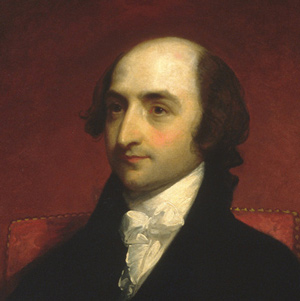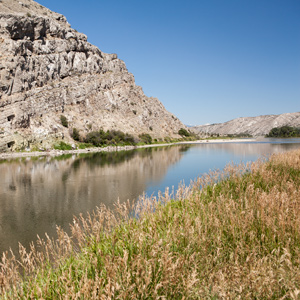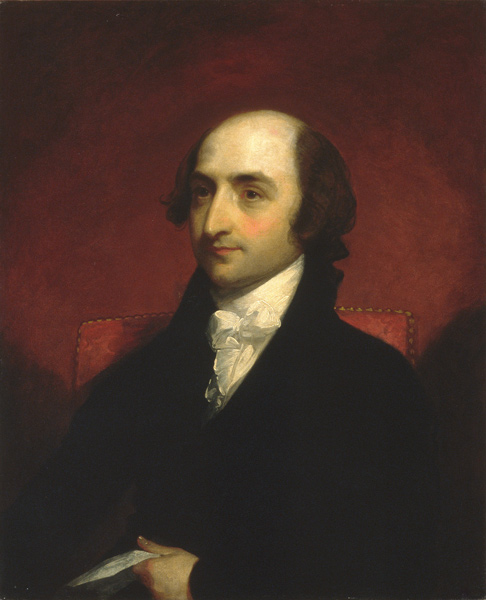Albert Gallatin (1761-1849) was born in Geneva, Switzerland, into a cultured aristocratic family led by physicians, statesmen and soldiers, one of whom commanded a battalion at the battle of Yorktown. He emigrated to the United States in 1780, at the age of 19, and under the terms of the Articles of Confederation of 1781, gained legal citizenship after nine years of residency, meanwhile teaching French at Harvard University.
In the tradition of his august family background, Albert was drawn to public life, soon transcending politics to become one of the most influential statesmen in American history. Consistent with his station and the spirit of his time, he was a savant—a diplomat, financier, peacemaker, scientist, geographer, lover of nature, and above all a visionary with unswerving faith in the ultimate wisdom of a people wielding the instruments of democracy. Throughout his sixty-year-long career he worked sedulously in behalf of free public education, universal suffrage, and the abolition of slavery.
Despite powerful and sometimes vicious opposition from the Federalists, Gallatin was a key figure in the implementation of Jefferson’s unprecedented design for a new and growing republic. As Jefferson’s Secretary of the Treasury, he engineered the financial details of the Louisiana Purchase (without increasing taxes), then resolved the constitutional issues that complicated the transaction.[1]Frank Ewing, America’s Forgotten Statesman: Albert Gallatin (New York: Vantage Press, 1959).
He even helped plan the Lewis and Clark Expedition. In March 1803, for instance, he asked Nicholas King to prepare a new map of western North America incorporating the main features of nine of the most recent maps by other explorers, including George Vancouver, Alexander Mackenzie, and David Thompson.[2]Nicholas King, who came to the U.S. from England in 1794, was the first surveyor of Washington, D.C. He also prepared maps for the expeditions of George Hunter and William Dunbar, Zebulon Pike, and … Continue reading
At the age of seventy he wrote a monumental treatise describing the characteristics, territories, and languages of all known Native American tribes, including those of Mexico and Central America. At eighty-one he founded the American Ethnological Society. Shortly before his death in 1849, he published several papers in the society’s journal on the Chinuk Wawa (Chinook Trade Jargon) or trade-language that had emerged within the previous fifty years on the northwest coast of America.
For all that, soon after his death in 1848 his name faded from popular history, and he became “America’s forgotten statesman.”
Related Pages
- January 24, 1803 -

Washington, DC In a memo to Albert Gallatin, Thomas Jefferson proposes mooring a ship opposite New Orleans to act as a temporary customs house until a permanent solution to port's closure can be arranged.
- July 27, 1805 -

Lewis and the boats reach the end of the Missouri. After exploring the Madison River, Clark’s group returns to the headwaters, and the captains name the three forks: Jefferson, Madison, and Gallatin.
Notes
| ↑1 | Frank Ewing, America’s Forgotten Statesman: Albert Gallatin (New York: Vantage Press, 1959). |
|---|---|
| ↑2 | Nicholas King, who came to the U.S. from England in 1794, was the first surveyor of Washington, D.C. He also prepared maps for the expeditions of George Hunter and William Dunbar, Zebulon Pike, and others. |

